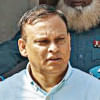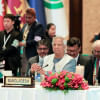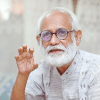No compromise on freedom of expression
Media experts, journalists and human rights activists have called upon the government not to put restrictions on newsmen and social media users in the name of laws for ensuring freedom of expression in Bangladesh.
They have also urged the new media users to stay cautious while using the Internet, saying a vested quarter was trying to harm the unity and harmony of the people by spreading propaganda online.
The calls were made during a seminar titled "The State of Press Freedom in Bangladesh: Challenges and Way Forward" at Cirdap Auditorium in the capital.
Unesco Bangladesh, Mass-line Media Centre and Institute of Communication Studies jointly organised the programme to mark the World Press Freedom Day 2016 yesterday.
“We can't vehemently deny that people are afraid to speak up. We can't accept this situation in a country that gained its independence through a liberation war,” human rights activist Sultana Kamal said at the seminar.
It would be a great blow to the spirit of the Liberation War if people were denied their right to freedom of expression, she said.
Referring to the bloggers who have been attacked for exercising the right, the former caretaker government adviser also said it was a matter of sorrow that they, instead of being provided with protection, were being held responsible.
Since February 2013, several secular online activists and a publisher were hacked to death with sharp weapons by suspected militants.
Quoting a local rights body, Prof AJM Shafiul Alam Bhuiyan, chairman of Dhaka University's Television and Film Studies department, said there were 244 incidents in the country last year in which people, including journalists, were harassed, attacked or murdered.
He, however, criticised the organisation for not “providing an analysis of when, where, why and how these incidents happened and what measures had been taken by the government to address the issues”.
Replying to a query, the teacher, who presented the keynote paper "Fostering Freedom of Expression in Bangladesh”, also expressed concern as activists of a party filed cases against a newspaper editor across the country over the same issue.
Freedom House, a global organisation working for the expansion of freedom and democracy, in its 2016 report ranked Bangladesh 49 on the freedom status and identified it as partly free country with partly free press and online media.
The report observed, "Bangladesh received a downward trend arrow due to a series of high-profile murders by Islamic militants, increasing restrictions on critical journalists and censorship of media context," mentioned the keynote paper.
In its report, the Reporters Without Borders said there was a “disturbing” decline in respect for media freedom at global and regional levels last year. Bangladesh ranked 144 among 180 countries in terms of press freedom in 2015.
“In Bangladesh, it is a bad idea to criticise the constitution or Islam, the state religion,” the report said.
Prof Shafiul also called for creating a culture of tolerance to ensure press freedom, protecting those holding dissenting opinions and trying the incident in which journalists were attacked.
Chief Information Commissioner Prof Golam Rahman termed any attempt to control the media a negative attitude. He also said the new media was a “new challenge” and suggested socially boycotting the culprits who are out to spread hatred online.
Journalist Selim Samad said formulation of laws restricting expression of opinion was unnecessary as “people themselves reject anything that is false”.
The speakers also criticised section-57 of the Information and Communication Technology (ICT) Act.
According to the section, if any person deliberately publishes or transmits false, obscene and derogatory information in a website or in any other electronic form, he or she could be imprisoned and fined.
Many who oppose the section say it violates the constitutional provisions regarding equality before law, freedom of thought, and free speech.
bdnews24.com Editor-in-Chief Toufique Imrose Khalidi chaired the programme. Head and representative of Unesco Bangladesh Beatrice Kaldun, columnist Syed Badrul Ahsan, among others, spoke.
Shameem Ara Sheuli, executive director of Institute of Communication Studies, and Kamrul Hasan Monju, executive director of Mass-line Media Centre, were also present.
Meanwhile, Information Minister Hasanul Haq Inu yesterday told BBC Bangla service that the government did not pass any law that interfered with people's freedom of expression. Also, the government did not consider the media an opponent but a friend of democracy, he said.
The media is under threat from militants, terrorists and the mafia gangs, which are outside the country, he said, adding that “the government stands by the media”.

 For all latest news, follow The Daily Star's Google News channel.
For all latest news, follow The Daily Star's Google News channel. 








Comments